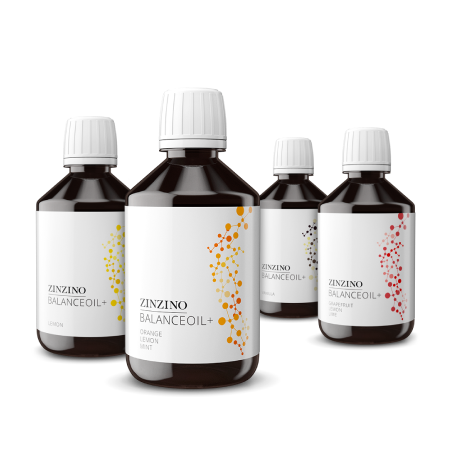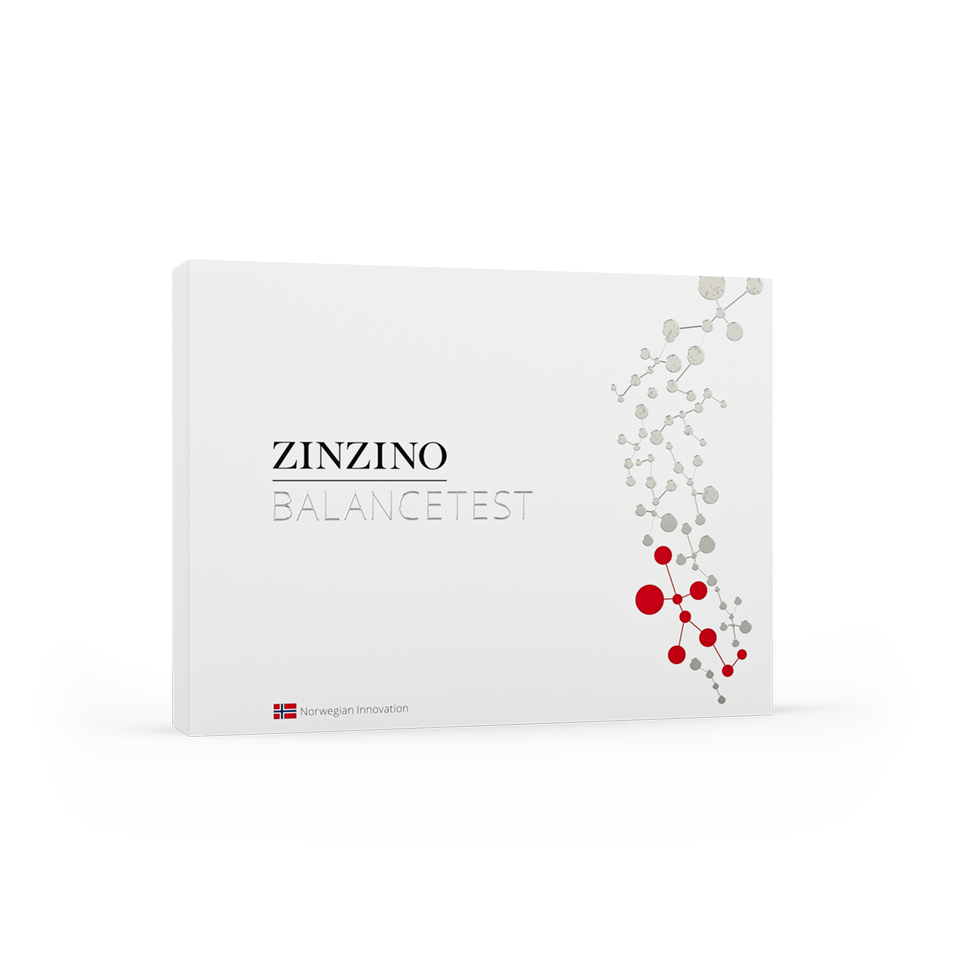Angela Reggiori
Klient Zinzino
Zapraszamy! O tych produktach mogę mówić w samych superlatywach i myślę, że Ty również je pokochasz. Daj mi znać, co myślisz na ten temat!
Korzyści zdrowotne wynikające ze stosowania polifenoli i kwasów omega-3

Walcząc z problemami zdrowotnymi, nie zawsze zwracamy uwagę na odżywianie, ale to, co codziennie dostarczamy naszemu organizmowi, ma ogromne znaczenie dla zachowania dobrego samopoczucia. Jedne z najważniejszych składników odżywczych, które w niewiarygodny wręcz sposób wpływają na prawidłowe funkcjonowanie umysłu i ciała, to omega-3.
Tak, to te niezbędne kwasy występujące w różnych gatunkach tłustych ryb.
Organizm człowieka nie jest w stanie wyprodukować tych kwasów, a większość ludzi nie spożywa ich w wystarczającej ilości, dlatego potrzebujemy dwutorowego podejścia – suplementu diety bogatego w kwasy omega-3 i polifenole.
Znaczenie EPA i DHA – kwasów omega-3.
Europejski Urząd ds. Bezpieczeństwa Żywności (European Food Safety Authority, EFSA) opublikował listę twierdzeń dotyczących kwasów omega-3, witaminy D i oliwy z oliwek. DHA i EPA to dwa najważniejsze rodzaje kwasów omega-3, które znajdują się w produkcie BalanceOil+.
DHA wspomaga prawidłowe funkcjonowanie mózgu1 i wzroku7, pod warunkiem codziennego spożywania w ilości 250 mg. EPA i DHA przyjmowane w ilości 250 mg dziennie przyczyniają się do wspierania prawidłowej pracy serca2. Prawidłowa wartość ciśnienia krwi jest zachowana przy 3 g tych kwasów dziennie9, a poziom trójglicerydów we krwi – przy 2 g8.
W przypadku kobiet ciężarnych zalecana dawka DHA wynosi 450 mg dziennie, co wspomaga prawidłowy rozwój mózgu płodu (i noworodków karmionych piersią).1 100 mg dziennie może pozytywnie wpłynąć na rozwój dziecka w pierwszych 12 miesiącach życia7.
Kwasy omega-3 są potrzebne osobom w każdym wieku – przyczyniają się do poprawy funkcjonowania serca, zachowania funkcji kognitywnych, wzroku i rozwoju płodu.
Kwasy tłuszczowe omega-3 EPA i DHA w naszym produkcie BalanceOil+ są pozyskiwane ze źródeł o najwyższym poziomie integralności – z dzikich sardynek, sardeli i makreli. Tłuszcze rybne nie podlegają żadnym procesom przetwarzania, z wyjątkiem oczyszczania – tak jak wszystkie tłuszcze pochodzenia rybnego.
Polifenole i kwasy omega-3
Oliwa z oliwek, bogata w polifenole, ułatwia przyswajanie kwasów omega-3. Polifenole z oliwy z oliwek są również silnymi antyoksydantami, które przynoszą całe mnóstwo korzyści, w tym chronią lipidy we krwi przed stresem oksydacyjnym6.
Bardzo ważny jest wybór produktu, który zawiera tłoczoną na zimno oliwę z oliwek z pierwszego tłoczenia. Używaną przez nas odmianą jest Picual ze względu na fakt, że zawiera więcej polifenoli niż inne odmiany. Zbiór oliwek w czasie, kiedy nie są jeszcze do końca dojrzałe, sprawia, że ich zawartość jest jeszcze większa. Dzięki wykorzystaniu pierwszego tłoczenia pozyskujemy oliwę doskonałej jakości, a wszystkie składniki odżywcze pozostają nietknięte.
Naukowcy Zinzino opracowali BalanceOil+ tak, by łączył kwasy omega-3 z odpowiednią zawartością oliwy z oliwek, która dostarcza kwasów omega-9 oraz antyoksydantów w bardzo dużych ilościach.
To synergiczne połączenie sprawia, że można w bezpieczny sposób dostosować i utrzymać poziom kwasów omega-3 w Twoim ciele, aby w ciągu 120 dni uzyskać balans omega-6:3 wynoszący 3:1 lub mniej.
Zawartość witaminy D
Poza długą listą korzyści dostarczanych organizmowi przez kwasy omega-3, dawka witaminy D w suplemencie BalanceOil również wspomaga funkcjonowanie układu odpornościowego3, mięśni12, wzmacnia strukturę kości11, wspiera procesy podziału komórek14 oraz pomaga zachować odpowiedni poziom wapnia we krwi10. Witamina D, z której korzystamy, jest w pełni naturalna, pozyskiwana z lanoliny – tłuszczu zawartego w owczej wełnie, który jest aktywowany przez promienie UV. Cały proces przypomina wytwarzanie witaminy D na ludzkiej skórze.
BalanceOil+ jest tak bliski naturze, jak to tylko możliwe. To wysokiej jakości mieszanka olejów naturalnego pochodzenia, która pomaga organizmowi osiągnąć harmonię i wpływa pozytywnie na całe Twoje ciało. To produkt jedyny w swoim rodzaju.
Ryba dnia
Stosuj dwutorowe podejście – dobre odżywianie i suplement diety z polifenolami i kwasami omega-3, aby osiągnąć odpowiedni poziom kwasów omega-3. Przestrzegaj zasad zdrowej diety śródziemnomorskiej zawierającej minimalną ilość przetworzonej żywności i przyjmuj BalanceOil+, by zbliżyć swój współczynnik do wartości 3:1.
Aby poznać swój obecny wskaźnik, warto wykonać Balance Test firmy Zinzino, a potem zastosować produkty z serii Balance, by w ciągu 120 dni stopniowo wyrównać jego wartość.
Przywrócenie balansu swojemu organizmowi jeszcze nigdy nie było tak łatwe.
* Te twierdzenia nie zostały ocenione przez Agencję Żywności i Leków (Food and Drug Administration, FDA). Ten produkt nie jest przeznaczony do diagnozowania i leczenia chorób ani zapobiegania im.
1. DHA přispívá k udržení normální činnosti mozku
DHA přispívá k udržení normální činnosti mozku. Tvrzení smí být použito pouze u potravin obsahujících nejméně 40 mg DHA na 100 g a na 100 kcal. Aby bylo možné tvrzení použít, musí být spotřebitel informován, že příznivého účinku se dosáhne při příjmu 250 mg DHA denně. Příjem kyseliny dokosahexaenové (DHA) během mateřství přispívá k normálnímu vývoji plodu a kojenců. Těhotným a kojícím ženám musejí být poskytnuty informace o tom, že příznivého účinku lze dosáhnout při příjmu dodatečných 200 mg DHA denně, který doplňuje denní příjem omega-3 mastných kyselin doporučený dospělým osobám, tj. 250 mg DHA a EPA. Tvrzení smí být použito pouze u potravin, které poskytují příjem nejméně 200 mg DHA denně.
2. DHA přispívá k udržení normálního stavu zraku
DHA přispívá k udržení normálního stavu zraku. Tvrzení smí být použito pouze u potravin obsahujících nejméně 40 mg DHA na 100 g a na 100 kcal. Aby bylo možné tvrzení použít, musí být spotřebitel informován, že příznivého účinku se dosáhne při příjmu 250 mg DHA denně. Příjem kyseliny dokosahexaenové (DHA) přispívá k normálnímu vývoji zraku u dětí do 12 měsíců věku. Spotřebitel musí být informován o tom, že příznivého účinku lze dosáhnout při příjmu 100 mg DHA denně. Je-li toto tvrzení použito pro pokračovací kojeneckou výživu, musí potravina obsahovat nejméně 0,3 % DHA z celkového objemu mastných kyselin.
3. EPA a DHA přispívají k normální činnosti srdce
EPA a DHA přispívají k normální činnosti srdce. Tvrzení smí být použito pouze u potravin, které jsou přinejmenším zdrojem EPA a DHA podle vymezení v tvrzení ZDROJ omega-3 MASTNÝCH KYSELIN na seznamu v příloze nařízení (ES) č. 1924/2006. Aby bylo možné tvrzení použít, musí být spotřebitel informován, že příznivého účinku se dosáhne při příjmu 250 mg EPA a DHA denně.
4. Mastné kyseliny DHA a EPA přispívají k udržení normální hladiny triglyceridů v krvi
Mastné kyseliny DHA a EPA přispívají k udržení normální hladiny triglyceridů v krvi. Tvrzení smí být použito pouze u potravin, které poskytují příjem 2 g EPA a DHA denně. Aby bylo možné tvrzení použít, musí být spotřebitel informován, že příznivého účinku se dosáhne při příjmu 2 g EPA a DHA denně. Pokud je tvrzení použito u potravinových doplňků anebo obohacených potravin, musí být spotřebitelům poskytnuta informace, že nemají překračovat doplňkový kombinovaný příjem 5 g EPA a DHA denně. DHA přispívá k udržení normální hladiny triglyceridů v krvi. Tvrzení smí být použito pouze u potravin, které poskytují příjem 2 g DHA denně a které obsahují DHA v kombinaci s kyselinou eikosapentaenovou (EPA). Aby bylo možné tvrzení použít, musí být spotřebitel informován, že příznivého účinku se dosáhne při příjmu 2 g DHA denně. Pokud je tvrzení použito u potravinových doplňků anebo obohacených potravin, musí být spotřebitelům poskytnuta informace, že nemají překračovat doplňkový kombinovaný příjem 5 g EPA a DHA denně.
5. Mastné kyseliny DHA a EPA přispívají k udržení normálního krevního tlaku
Mastné kyseliny DHA a EPA přispívají k udržení normálního krevního tlaku. Tvrzení smí být použito pouze u potravin, které poskytují příjem 3 g EPA a DHA denně. Aby bylo možné tvrzení použít, musí být spotřebitel informován, že příznivého účinku se dosáhne při příjmu 3 g EPA a DHA denně. Pokud je toto tvrzení použito u potravinových doplňků anebo obohacených potravin, musí být spotřebitelům poskytnuta informace, že nemají překračovat doplňkový kombinovaný příjem 5 g EPA a DHA denně.
6. Polyfenoly z olivového oleje přispívají k ochraně krevních lipidů před oxidativním stresem
Polyfenoly z olivového oleje přispívají k ochraně krevních lipidů před oxidativním stresem. Nahrazení nasycených tuků nenasycenými tuky ve stravě přispívá k udržení normální hladiny cholesterolu v krvi. Kyselina olejová je nenasycený tuk. Tvrzení smí být použito pouze u olivového oleje, který obsahuje nejméně 5 mg hydroxytyrozolu a jeho derivátů (např. oleuropein komplex a tyrozol) na 20 g olivového oleje. Aby bylo možné tvrzení použít, musí být spotřebitel informován, že příznivého účinku se dosáhne při příjmu 20 g olivového oleje denně.



Udostępnij tę stronę
Lub skopiuj link